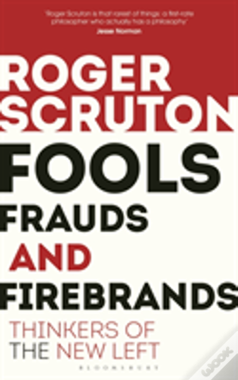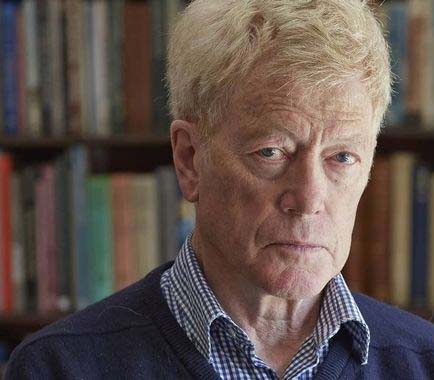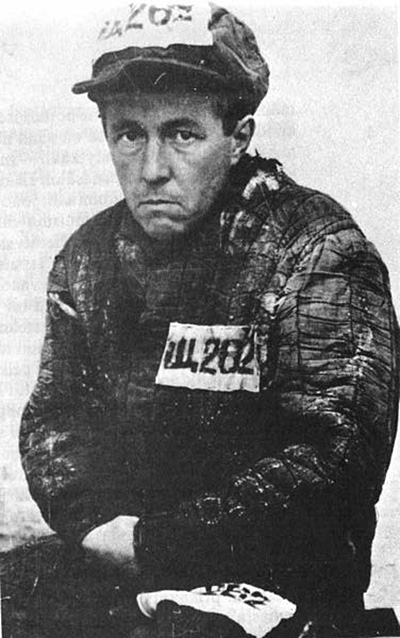
 Fools, Frauds and Firebrands
Fools, Frauds and Firebrands
Fools, Frauds and
Firebrands: Thinkers of the New Left.
by Roger Scruton (2015/2019)
Bloomsbury Continuum London viii- 296 p.
Reviewed by Paul Gosselin (2021)
My basic impression about this book: For anyone familiar with Marxist writings, it was well worth the price of the book, the last chapters especially. Scruton does an effective job of dissecting the guilt-mongering the New Left loves so much and also exposing the empty shell at the heart of this worldview. Scruton is NOT boring to read and does cut to the heart of things. I confess my intellectual pain threshold must be rather lower that Scruton's. Here are a few of the authors that Scruton examines: E. P. Thompson, Ronald Dworkin, R. D. Laing, Jurgen Habermas, Gyorgy Lukacs, Jean-Paul Sartre, Jacques Derrida, Michel Foucault, Slavoj Zizek, Ralph Milliband and Eric Hobsbawm. To have read through so much left-leaning/postmodern literature as Scruton has is quite a feat. I'm afraid my masochistic tendencies aren't quite so developed... Who need sleeping pills when you have Marx’s Das Kapital... ?
I would take issue with Scruton on one point though. What Scruton (and many others) call the “New-Left” I think should more appropriately be labelled “postmoderns”. Whereas the classic Left thinkers Scruton discusses from the post-WWII period were still focused on overthrowing capitalists and the Revolution of the proletariat, after Gramsci, this was no longer the case. In the 21st century, individuals labelled New Left typically have no interest in the working class or in a Revolution overthrowing capitalists. In actual fact, they are typically VERY comfortable with the like-minded postmodern capitalists who rule their kingdoms at Google, Amazon, Apple, Twitter or FaceBook... The only Revolution postmodern thinkers care about is cultural. They would basically terra-form the West if they could. And having slowly accessed more and more power and influence in politics, education, science and media, they are well on their way to doing so.
And here is another, typically unnoticed, reason to drop the New-Left label. While the ideologico-religious movements birthed by the mature phase of the Enlightenment[1] were dogmatic materialists, significantly this is no longer true of postmoderns. Enlightenment devotees considered Science (the capital S is a give-away...) as TRUTH, over-riding any other epistemological reference point. Postmoderns reject this core modern belief. As a result, in the final analysis, postmoderns reject the idea of a Universal Truth. Truth, when postmoderns use the term, it can only be subjective. This leaves us with the well-worn postmodern nonsense meme: Everyone has their own Truth! Few ever stop to ask what value a “truth”, valid only for one person, might have... A consistent postmodernist would rather reject the “truth” concept entirely, but maybe that is asking too much. Scruton ignores these important paradigm shifts... Postmodernism is a worldview.
Here’s an anecdote concerning such ideological shifts. One professor of Anthropology I encountered in university the 1970s was a devout Marxist preaching communist activism to students. Some 20 years later I ran into him (after the fall of the Iron Curtain and the Berlin Wall) and discovered he had dropped communism and had converted to the postmodern belief system and as a result was now into the occult and astral voyages... He had become a shaman...
Regarding postmoderns (or, if one prefers, the New Left) it is true that they have borrowed elements of “victim theology” from Marxism. As a result, rather than workers being considered the "oppressed minority" in the West, postmoderns now put forward women, gays or blacks as the new oppressed. But postmodern “victim theology” is not what it seems. There is little actual evidence that postmoderns actually care enough get their hands dirty to better the day-to-day state of these oppressed minorities. One side effect of postmodern “victim theology” is to blot out who the person you are actually talking to is. An “anti-racist” ranting about “white privilege” does not care about the actual life experience of the person he/she may be talking to. All that is erased along with that person’s life experience and actual behaviour. All you have left is skin colour... and guilt and/or hatred. The purpose of this “victim theology” seems primarily to use the victims as pretexts to target other social groups that are perceived as refuges for ideological targets, typically residual Judaeo-Christian concepts. These views, these beliefs are the actual targets. There is however a side benefit for postmodern in this game. And as the West becomes more and more polarised between groups defined by postmodern NewSpeak as either victims or oppressors, this facilitates the further erosion of democracy in the West, which may eventually provide an opportunity to postmodern elites granting themselves absolute power.
After reading Scruton’s book some may be tempted by the thought of passing it on to an ex-Marxist or a colleague or friend belonging to the postmodern sect in view of disabusing them of postmodernism. Here is my cynical advice: Don’t get your hopes up.
Ok, I know that sounds pessimistic, but there is a reason I say this. But to get my point it is necessary to back up a bit and look at the “culture wars” in the West from another perspective.
 Here is the thing, if one looks at
the deep cultural movements in the West such as the Modern/Enlightenment and
postmodern currents, from social anthropology perspective; they may be
legitimately viewed, not as philosophical movements, but fundamentally as
non-theistic religions. Once this unusual step is taken, then revealing
comparisons can be made. One must then take into consideration that each
religion or belief system has it’s own unique traits. In contrast to
Judaism or Christianity, one trait shared by both Modernism and Postmodernism is
that neither have a concept of repentance. The Enlightened have no need
of such things... In his Gulag Archipelago Alexandr Solzhenitsyn
describes discussions with devout communists who, after one of Stalin’s
purges, found themselves in the Gulag, yet totally unable to digest what had
happened to them or seriously question their views. Solzhenitsyn summed up the
faithful communist view and represented it in the following manner (1973:
194):
Here is the thing, if one looks at
the deep cultural movements in the West such as the Modern/Enlightenment and
postmodern currents, from social anthropology perspective; they may be
legitimately viewed, not as philosophical movements, but fundamentally as
non-theistic religions. Once this unusual step is taken, then revealing
comparisons can be made. One must then take into consideration that each
religion or belief system has it’s own unique traits. In contrast to
Judaism or Christianity, one trait shared by both Modernism and Postmodernism is
that neither have a concept of repentance. The Enlightened have no need
of such things... In his Gulag Archipelago Alexandr Solzhenitsyn
describes discussions with devout communists who, after one of Stalin’s
purges, found themselves in the Gulag, yet totally unable to digest what had
happened to them or seriously question their views. Solzhenitsyn summed up the
faithful communist view and represented it in the following manner (1973:
194):
One thing is absolutely definite: not everything that enters our ears penetrates our consciousness. Anything too far out of tune with our attitude is lost, either in the ears themselves or somewhere beyond, but it is lost.
Because, there is no concept of repentance in Modernism or Postmodernism this tends to override any urge to self-questioning (whether moral or intellectual) in coherent Moderns or Postmoderns. While guilt can be a useful weapon for Moderns or Postmoderns to use against their ideological targets, personally it is an irrelevant concept with no traction. It would never occur that they themselves might need to repent or self-examine their own beliefs or behaviour. Very few Moderns or Postmoderns are aware of the ideological straitjacket they wear...
Here is one case of a Western intellectual that has tiptoed on the edge of such questions, British literary critic George Steiner. In his Grammars of Creation Steiner examines the massive moral questions raised by World War II and the Holocaust. WHY did such things happen? Such moral questions are off the scale of everyday life issues and not easily sorted out. So what happens when a typical Western intellectual reflects on such matters while still securely restrained by his Enlightenment intellectual straightjacket? Here is the result (Steiner 2001: 4):
When, however, allowance is made for selective nostalgia and illusion, the truth persists: for the whole of Europe and Russia, this century became a time out of hell. Historians estimate at more than seventy million the number of men, women and children done to death by warfare, starvation, deportation, political murder and disease between August 1914 and 'ethnic cleansing' in the Balkans. There have been hideous visitations of pestilence, famine and slaughter before. The collapse of humaneness in the twentieth century has specific enigmas. It arises not from riders on the distant steppe or barbarians at the gates. National Socialism, Fascism, Stalinism (though, in this latter instance, more opaquely) spring from within the context, the locale, the administrative-social instruments of the high places of civilization, of education, of scientific progress and humanizing deployment, be it Christian[2] or Enlightened. I do not want to enter into the vexed, in some manner demeaning, debates over the uniqueness of the Shoah ('holocaust' is a noble, technical Greek designation for religious sacrifice, not a name proper for controlled insanity and the 'wind out of blackness'). But it does look as if the Nazi extermination of European Jewry is a 'singularity', not so much in respect of scale - Stalinism killed far more - but motivation. Here a category of human persons, down to infancy, were proclaimed guilty of being. Their crime was existence, was the mere claim to life.
Just after the quote above, Steiner goes on to note that the 20th century European disaster included another peculiar feature; it lead to an actual regression of civilization. Enlightenment thinkers had confidently predicted the end of torture by legal authorities and prophesied that the revival of censorship, book-burnings and that even the burning of dissidents or heretics was inconceivable. The nineteenth-century took for granted that development in education, accumulating scientific knowledge and increased opportunities to travel (Enlightenment gnosis) would bring an inevitable improvement of public and private morality as well as greater tolerance of political views. Steiner concedes each of these hopes proved false. By itself the carnage of the First World War produced a shock, a deep disillusionment for the generation experienced it, but this would prove to be a small matter considering what was to come... Viewing the impact of Nazism, Steiner goes on to point out that higher education actually showed itself unable of nurturing compassion or resistance to the logic of hatred and is shocked to see that a culture as refined and as advanced in artistic, scientific and intellectual terms as that of Germany collaborated so readily and actively with the sadist ideology of the Nazi State. 20th century European history demonstrates that well-educated technocrats may efficiently assist or remain coldly indifferent to brutal inhumanity. The 20th century brutally mocked the grandiose dreams of the Enlightenment.
It should be noted that while Steiner himself is of Jewish origin, yet despite examining the horrors of the Holocaust he fails to connect the dots back to the Enlightenment (which had also deeply penetrated 19th and 20th century Jewish thinking). Why is that? Where does this leave him? Well, predictably the horrors of the 20th century find themselves “shrouded in mystery"... As a result, Steiner talks about the enigma of the collapse of humaneness in the twentieth century. So now we have a puzzle, a logical dead-end here. The picture is out of focus. What could be the cause? Part of the problem is that if one remains trapped in the Enlightenment straitjacket, there is no conceivable, rational explanation for such horrors... This is as far as Steiner and many others can go. This is the Dead end, the cul-de-sac. Facing the hard question, moderns will often grasp for any plausible explanation, which usually leads to trotting out the pathetic “Hitler was a madman/moral monster” meme. Needless to say, this is better than just throwing one’s hands up in the air. It does the job, it explains everything... After all, serious thinking is painful.
References
-- (2016) Le rôle des sciences bio-médicales sous le IIIe Reich. Histoire de la Médecine et Éthique médicale
Adekoya, Remi (2021) The tyranny of racial groupthink: Individuals are being routinely reduced to their skin colour. Spiked 2/4/2021
Gosselin, Paul (2012) Flight From the Absolute: Cynical Observations on the Postmodern West. Volume I Samizdat Québec ix - 412 p.
Proctor, Robert (1988) Racial Hygiene: Medicine under the Nazis. Harvard University Press Cambridge, Massachusetts
Solzhenitsyn, Alexandr I. (1973) The Gulag Archipelago 1918-1956: An Experiment in Literary Investigation. Volume I Harper & Row New York 660 p.
Steiner, George (2001) Grammars of Creation. Yale University Press New Haven 347p.
[1] - One can legitimately ignore the brief initial/immature phase with deists such as Descartes, Voltaire or Benjamin Franklin...
[2] - This is a patent red herring. Even by the late 19th century, Christianity’s influence among the élite or educated classes of the West was marginal at best. Dietrich Bonhoeffer’s radio address protest of the Führerprinzip in 1933 (two days after Hitler was installed as Chancellor...) and C.S. Lewis’ Abolition of Man are both protests against the totalitarian mindset.